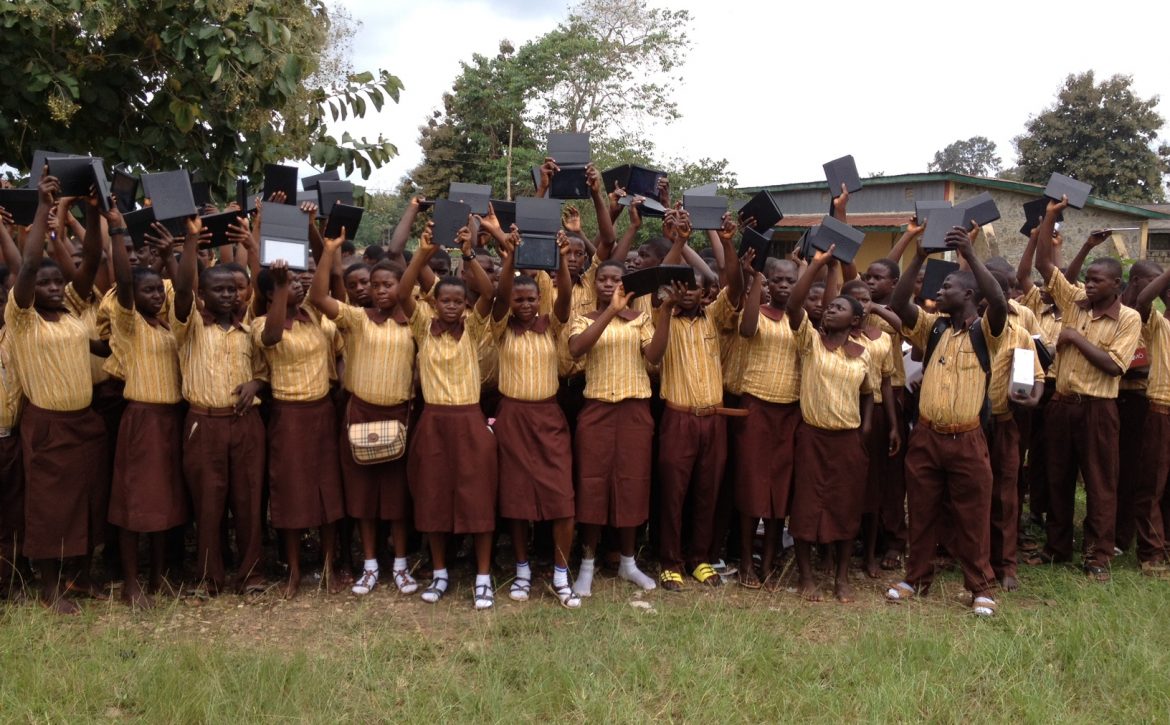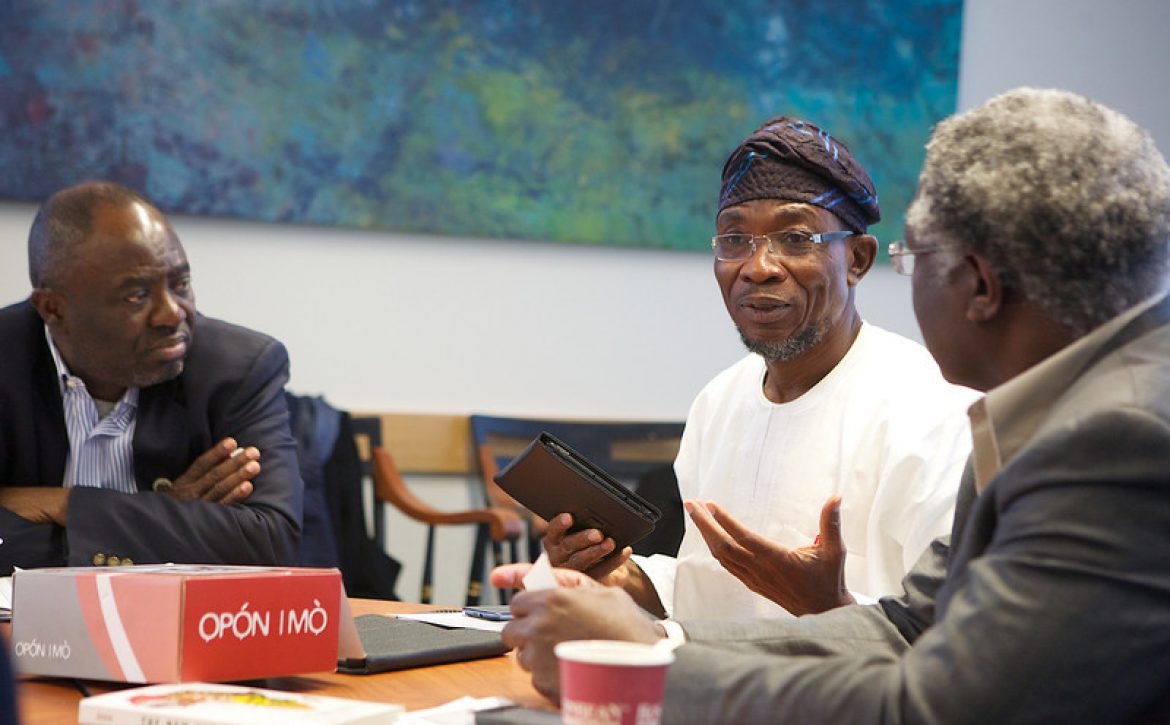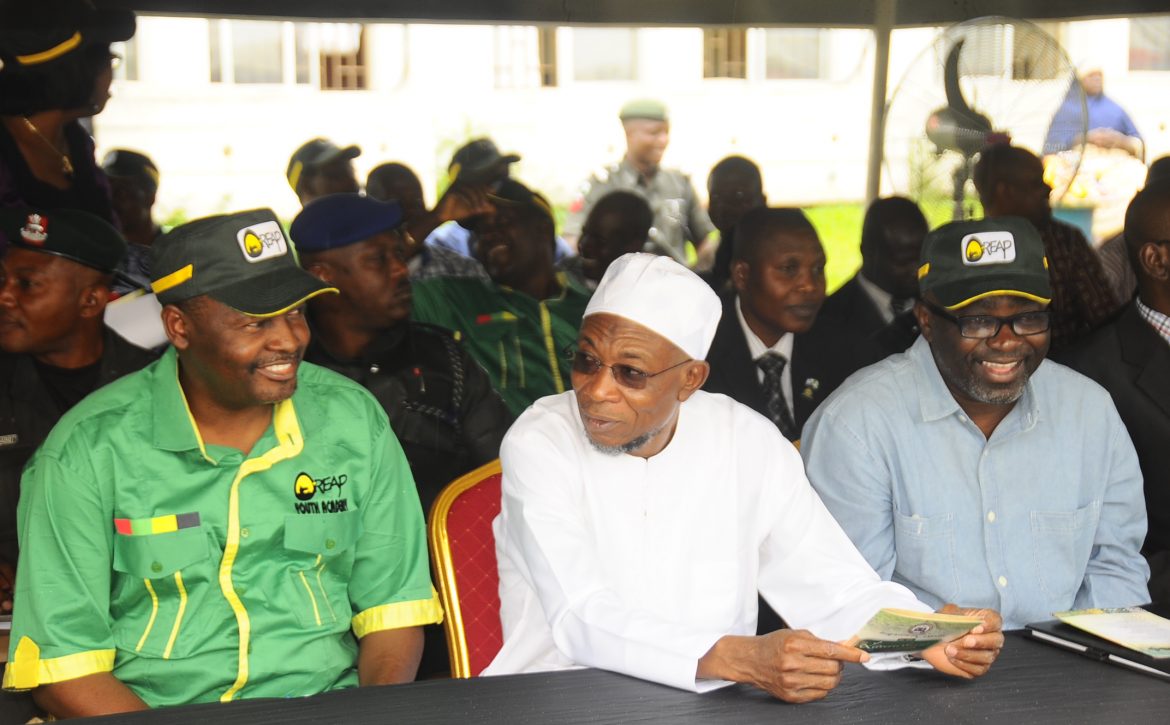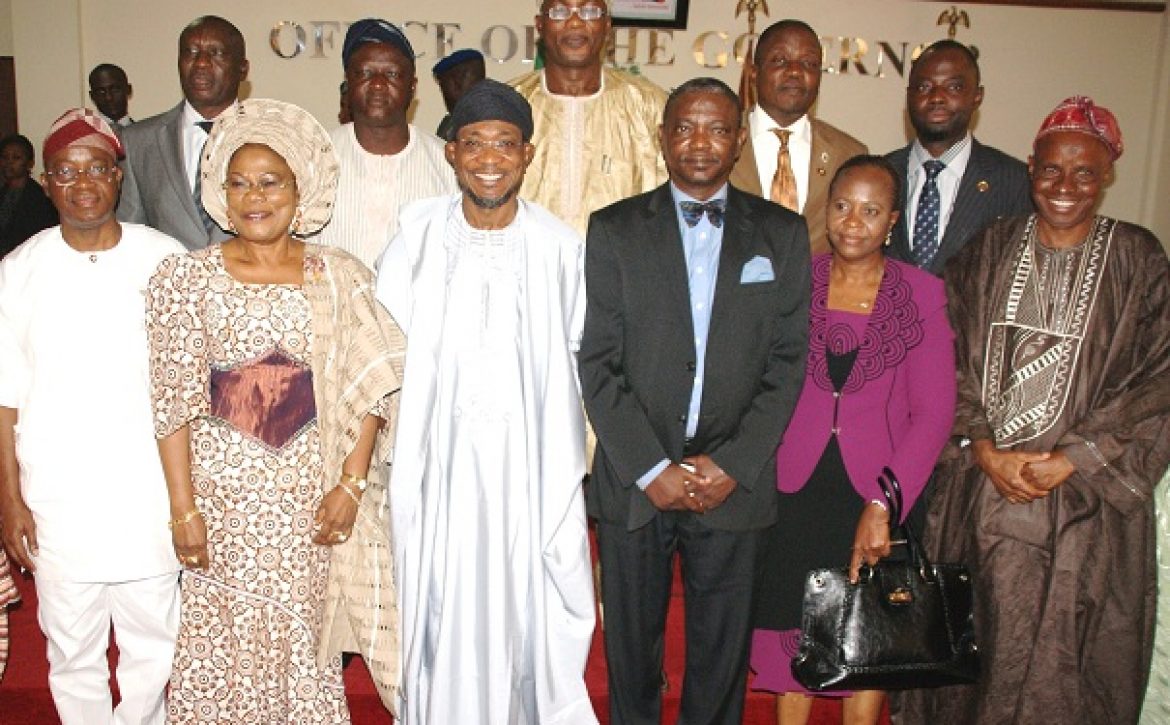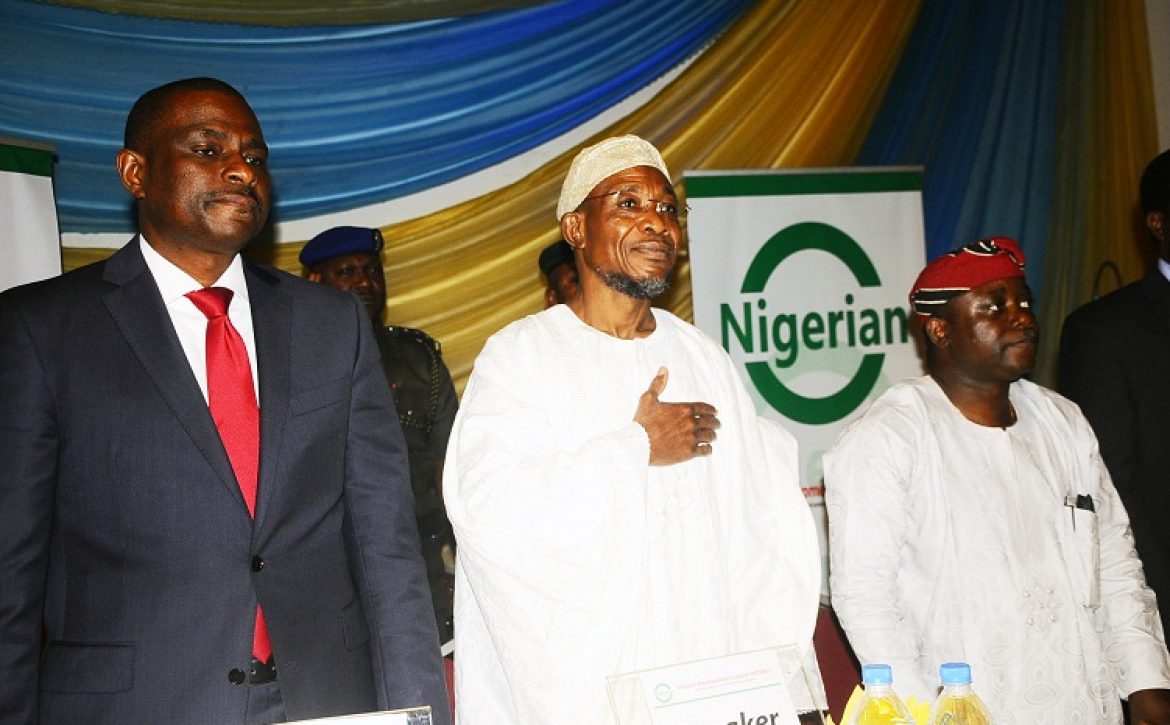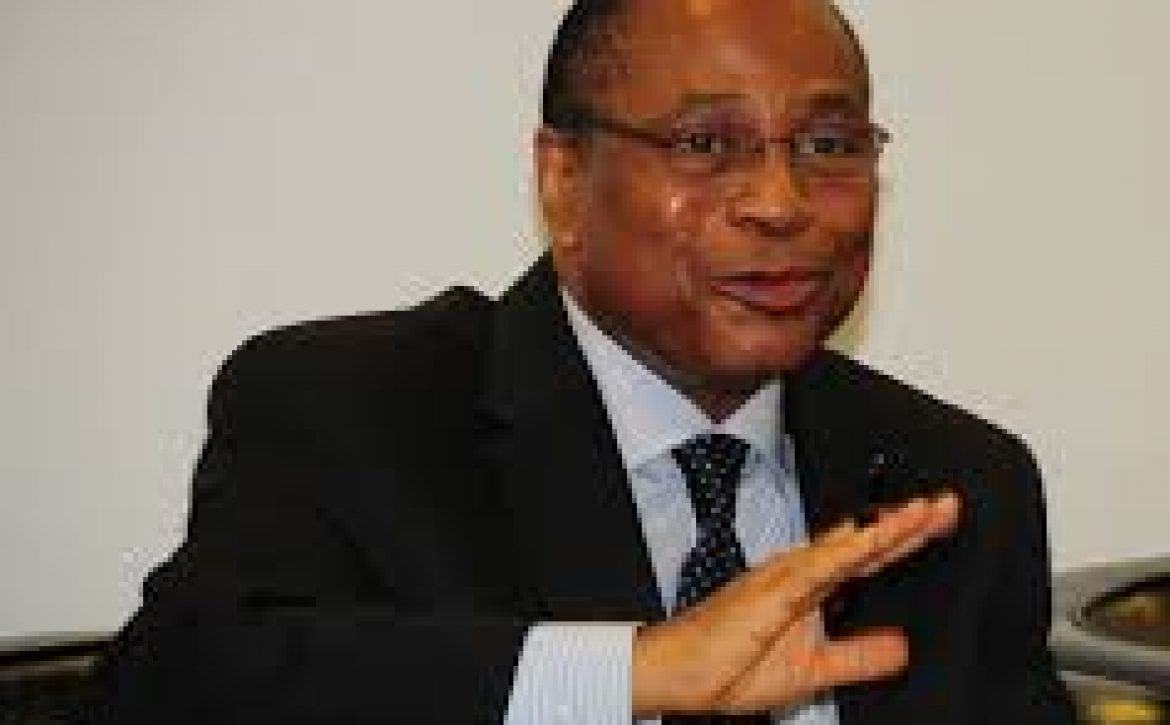 TODAY, at 11am at Oduduwa hall, Obafemi Awolowo University, State of Osun, the Ooni of Ife, Alayeluwa Oba Okunade Sijuwade, Olubuse II, will lead his illustrious Ile-Ife subjects and all Yorubas in celebrating the heroic valour of the fourth monarch, Oranmiyan, who occupied his throne. The three-day festival will open with a lecture that will put Oranmiyan in perspective before other activities will follow.
TODAY, at 11am at Oduduwa hall, Obafemi Awolowo University, State of Osun, the Ooni of Ife, Alayeluwa Oba Okunade Sijuwade, Olubuse II, will lead his illustrious Ile-Ife subjects and all Yorubas in celebrating the heroic valour of the fourth monarch, Oranmiyan, who occupied his throne. The three-day festival will open with a lecture that will put Oranmiyan in perspective before other activities will follow.
With the theme ‘Oranmiyan –What is a Name?’ organisers hope to give historical background to the rise of Oranmiyan and his place in Yorubaland. The lecture will be given by Karunwi III, Oba Adedapo Adewale Tejuoso and chaired by Prof. Wande Abimbola. Osun State Governor, Rauf Aregbesola is special guest of honour.
Consultants to the festival, Flabsy Travel and Tours Ltd, said the festival would serve as source of unity among the Yoruba nation, as her sons and daughters would be drawn from all parts of the world to attend and pay homage to their illustrious ancestor.
Supporting the festival will be Nigerian Bottling Company, makers of Coca Cola Coke; Grand Oak Ltd, makers of Seamans Schnapps, Obafemi Awolowo University, Ile-Ife, Vita Foam, WABP Publishers and others.
Also, through Oranmiyan Festival, Lawrence Omidiora and Abiodun Olabampe of Flabsy Travels and Tours Ltd hope to market the historical artifacts associated with the legendary Oranmiyan and Ile-Ife. Such artifacts include Oranmiyan Staff located in his grave site, his sword and calabash of divination, which must confer legitimacy on any would-be Alaafin of Oyo before he takes office, and his shield located at Alasa compound at Iremo, Ife.
A prominent Ife personage, Chief Bashir Awotorebo, noted that Oranmiyan isn’t a religious deity, but a cultural, war hero, said Ile-Ife is the cultural capital of all Yoruba and that Oranmiyan as legend of Ile-Ife culture, was a man who was always in the forefront of war. He added, “Flabsy is in the right perspective that Oranmiyan should be celebrated. There should be Ife Cultural Week to really bring to the fore the rich culture of Ife”.
THE GUARDIAN
 Governor Rauf Aregbesola of the State of Osun has said the ongoing re-classification of schools in the state is to advance the sector, which according to him, had been in a backward state and needed to be revitalized.
Governor Rauf Aregbesola of the State of Osun has said the ongoing re-classification of schools in the state is to advance the sector, which according to him, had been in a backward state and needed to be revitalized.
Osun had recently restructured education in the state to elementary, middle and high schools obtainable in other climes.
As a result, the governor said there was need for patience and understanding from the people over the ongoing reform.
He said the administration was worried over the state of education when it came to power in November 2010, and it organised an education summit involving the stakeholders in order to chart a way forward.
The governor, who was represented by the deputy governor, Mrs. Titilayo Laoye-Tomori, spoke at the opening of the 2nd session of the 8th Synod of the Diocese of Ife, Church of Nigeria (Anglican Communion).
He said the current education policy in place was the aftermath of the stakeholders meeting, stressing that it was meant to give education a face lift.
 She said, “We are presently re-classifying our schools. We are doing this to reposition education in the state. We have good intention for our people, especially for our children. We were worried and concerned about the state we met education when we came into the governance of the State in November 2010.
She said, “We are presently re-classifying our schools. We are doing this to reposition education in the state. We have good intention for our people, especially for our children. We were worried and concerned about the state we met education when we came into the governance of the State in November 2010.
“We called education summit – we invited stakeholders in education, our people in Diaspora and those that are committed to advancement of education in Nigeria.
“The schools that we met on ground were not the school that we attended. Things had fallen apart in our schools–the buildings had given way to dilapidated structures and the classrooms were nothing to write home about. And we believe that our children should have better education environment that we had when we were children.”
The communiqué issued after the summit, she added, had been the roadmap for this re-classification. “In line with best global practices all over the world today, we have three structures in education: we have the elementary school, middle school and high school. That is the way it is done outside the country. It is an attempt to put children that are of the same age group together as a group, to give them what they desire and require and to make them evolve as better citizens and to make them to be better educated, “ she added.
PUNCH

At the debut of Opon Imo – tablet of knowledge – on May 13th this year, Governor Ogbeni Rauf Aregbesola knew that it would be celebrated within and outside the shores of Nigeria. But he was unaware that it was going to garner laurels across the globe and in quick succession in torrential rapidity. Apart from being applauded by the World Bank, the Speaker of House of Representatives, Honourable Aminu Tambuwa and the Minister of Finance and coordinating for economy, Dr. Ngozi Okonjo-Iweala, Opo Imo has become a metaphor as an e-learning device of all time.
Ogbeni was right on point when he said: “We are breaking a yoke of nothingness; the yoke of irrelevance that our continent has been under for a long time. Nobody expects anything from our continent but we are sending signals to the world that the Africans have arrived; that we no longer accept the tag of the continent without a future. To me, that is the statement we have made with the launch of this hand held device.
“The idea of an electronic tablet is not our invention and we make no such claims. But we have made something completely new and there is none like it in the face of the world. Other tools do not have pre-loaded materials like this; you must get to the internet to upload. It is a complete system that does not need to interface with others. It was commended by Harvard University. It is the first major learning device for self study.”
Thus a science student, who has interest in literature and does not offer it, can still dip into literature texts at his leisure. In the same way, an arts student can learn about scientific concepts that intrigue him, purely for knowledge sake, while the other modules in the Opon-Imo application are largely worked on by WAEC and JAMB examiners with the Osun State Teaching Service. In other words, the contents are all locally-sourced. Opon Imo, which was made to go through various levels of mechanical stress test, as this can be verified from UNIOSUN ICT Department, is the first of its kind ‘’stand-alone e-learning tool’ in Africa and arguably in the world.
As expected, the news has filtered in that the esteemed Opon-Imo (Tablet of Knowlegde) won a World Summit Award in the e-Learning and Science Category. The World Summit Award (WSA) is a global initiative for selecting and promoting the world’s best electronic media and applications. It sees the bridging of the digital divide and narrowing of the “Content Gap” as its overall goal and, as of 2006, it involves representatives from 168 countries on each continent.
In the same vain, the innovative e-learning devise has also been nominated for the Nigerian Telecom Awards 2013. The Tablet of Knowledge was nominated under the category of African Most Innovative Product of the Year. The award comes up on September 20 at the Tafawa Balewa Square, Onikan, Lagos. Other categories of the awards include African Telecom of the Year; African Telecom Personality of the Year; West Africa Mobile Operator of the Year; Computer Brand of the Year among others. Besides, in the category of ICT State of the Year, Osun also got nominated alongside Ekiti and Bauchi States.
The Opon Imo tablet, which was launched on Monday 13th May, provides three major content categories: e-library, virtual classroom and an integrated test zone. The e-library contains 63 e-books covering 17 academic subjects for examinations conducted by WAEC, NECO and JAMB as well as non-academic subjects such as History of The Yoruba, Sexuality Education, Civic Education, Ifa on ethics and morals, enterprise education as well as hints and tips on passing SSCE.
In the integrated test zone of the device, there are more than 40,000 JAMB and WAEC practice questions and answers dating back to about 10 years and mock tests in more than 51 subject areas, which approximates to 1,220 chapters, with roughly 29,000 questions referencing about 825 images. Other sections of the e-learning device are an average of 16 chapters per subject and 823 chapters in all, with about 900 minutes or 15 hours of audio voice-overs.
The state saved a whopping N8.4 billion from live textbook purchases and instead, just a sum N200 million was spent by the state government for the purchase of the 56 e-books on Opon-Imo with 150,000 user licenses from a major educational publishing company from the country. As it is structured, Opon-Imo ensures that each student has an e-textbook, not only in all the subjects he is taking, but also on every subject offered at secondary level. This in itself is revolutionary.
The tablet was distributed free of charge to students of public schools in the Senior Secondary I and II categories in the state. Opon Imo has been commended as one of the veritable tools of advancing and promoting easy learning and democratising education system not only in the state but across the country and beyond wherever it is embraced.
Opon Imo was the crown of the day at the Edo Information Communication Technology, ICT, Day a few weeks ago. The State of Osun’s Director of ICT, Mr. Bambo Bashorun reeled off the advantages of Opon Imo to the captivated audience that drew applause for the novel initiative of Governor Aregbesola.
As it stands, Opon Imo has come to stay.
DAILY INDEPENDENT

(From right) State of Osun Commissioner for Agriculture and Food
Security, Mr Adewale Adedoyin, Governor Rauf Aregbesola and Dr Charles Akinola,
Director of General Office of Economic Development
and Partnership, during the launching of
the 2nd Edition of Osun Rural Enterprise and Agriculture Programme
(O-REAP)Youth Academy
With the volatility of oil prices, if there is one place Nigerians have found unanimity of opinions, it is in the call that the economy should be diversified. And when the call for economic diversification is made, Nigerians believe that the easiest sector is the agricultural sector.
Commentators and stakeholders alike have lamented that the continued neglect of the sector by successive administrations in the country has the tendency of exposing the nation to famine as it is being experienced in some developing nations like Somalia, Niger republic and Sudan.
Experts have equally argued that the dwindling foreign earnings that the country is going through now could have been averted if the sector was given its pride of place. For instance, the huge foreign earnings frittered away in importation of food items could have been conserved and the much needed foreign exchange ploughed in order sectors of the economy.
It is on the backdrop of this that the government of Osun State in the last three years decided to embark on revamping the agricultural sector mainly as a primary source of raw materials, improve food sufficiency and in the process, create employment.
Enumerating his six point integral action plan, the governor of the state, Ogbeni Rauf Aregbesola promised to use agriculture to banish hunger and poverty in the state.
In recognition of the agrarian nature of Osun State and its enormous potential for employment generation, a deliberate policy for mass food production through the Osun Rural Enterprise and Agricultural Programme, O-REAP, has been designed to enable the ministry give priority attention to agricultural commodity value chain spanning production, processing, storage, preservation and marketing.
The mission of O-REAP is to achieve food security, wealth and job creation, youth empowerment, economic transformation and making the state a hub of agriculture and a centre of commerce in the South-West. The mission is a strategy to capture Lagos market through supply of at least 10% of the estimated daily N3 billion worth of food in the state.
As part of efforts to fulfill its social contract with the people of the state, Governor Rauf Aregbesola put considerable emphasis on hunger and poverty alleviation which is the core value of National Economic Empowerment and Development Strategy, NEEDS, and attainment of Millennium Development Goals.
The administration is working round the clock towards the attainment of the objectives of the O-REAP through sustainable implementation strategies to aid the operation of farmers through land acquisition, land clearing and private public partnership, as well as provision of enabling environment for farmers to maximise their potential. O-REAP focuses on different agricultural initiatives which include Osun Broilers Out Growers Production Scheme.
 The Beef Chain Development Programme, O-REAP Fish Farm Estates, Osun Fisheries Out-Growers Production Scheme, O-REAP Youth Academy, Agricultural Credit, Farm Service Centers, Provision of storage facilities and seeding production as well as farm settlement scheme are the programmes mapped out under O-REAP.
The Beef Chain Development Programme, O-REAP Fish Farm Estates, Osun Fisheries Out-Growers Production Scheme, O-REAP Youth Academy, Agricultural Credit, Farm Service Centers, Provision of storage facilities and seeding production as well as farm settlement scheme are the programmes mapped out under O-REAP.Observers and indigenes of the state say the scheme has drastically redefined the sector as farmers now have access to over one thousand, day old; chicks under the Osun Broilers Out-Growers Production Scheme, O-BOPS.
The O-Broiler initiative is yielding positive result due to its linkage to O-meals, a school feeding programme which provides a sustainable market for poultry farmers in the state. O-Fish scheme of the present administration has opened window of opportunity for fish farmers through public private partnership arrangement. Over 800, 000 kilogrammes of cat fish are expected to be produced and processed by over 4, 000 fish farmers yearly in the state.
Also, the administration has designed quick impact intervention programme, the programme which focuses on small holding farmers and micro-credit management for cooperative farmers. The programme has made significant impact as cooperative groups were strengthened and agricultural activities increased substantially in the state.
Within two years, 77 farmers were registered for farmer’s cooperative groups and over one thousand hectares of land were cultivated while over one thousand jobs were created through the intervention.
The state government said that the success recorded under the intervention programme informed the design of Central Bank of Nigeria, commercial banks and agricultural enterprises to support government to enhance production of maize, cassava, rice and vegetables in the state.
Aside from making agriculture a key component of its economy, the administration also believes in the idea of making the sector more attractive to youths. To this end, government has designed school agriculture programme for the training of primary and secondary schools students in the art of farming. To ensure actualisation of the dream, Osun State government has provided schools in the state with necessary inputs for practical training for the production of cassava, maize and coco-yam while about ten schools were assisted on piggery and poultry production.
In its stride to revitalise farm settlement in the state and make the state the food basket of the nation, the administration also focused on farm settlement with a view to reposition the settlement to be in tandem with global practice.
In year 2011, about fifty hectares of virgin forest land were cleared, prepared and allocated to ten farmers free of charge at Mokore farm settlement as part of efforts of the government to enhance productivity of farmers and provide food in abundance for Osun State inhabitants.
In 2012, government extends the gesture to Iwo farm settlement with clearing of one hundred hectares of land to twenty farmers. Government also provided accessible road for the farm settlement so as to link farmers with market.
Other farm settlements that are also enjoying the presence of government include Ago-Owu and Oyere Aborisade farm settlement among others.
Also in its bid to make life more bearable for farmers and to enhance their production, the state government has distributed farm inputs ranging from CP 15 Sprayer, Grammozone and Atrazine to one thousand, eight hundred and thirty farmers in the state.
The beauty of the administration’s agricultural policies and programmes lies in the application of technology into farming through provision of agro chemicals to farmers to encourage massive food production across the state.
The administration is working hard towards reclaiming the old glory of people of South-West, and this is visible also with its efforts in providing free cocoa seedling to cocoa farmers in the state. Over ten million naira was released to cocoa farmers recently to boost cocoa production in the state.
Osun State has enormous agricultural resources that can be optimally exploited to achieve laudable objectives of poverty alleviation and overall economic prosperity for the entire state. The climate of the state is very clement and conducive to the commercial production of eight major categories of agricultural produce which have extensive potential for industrial utilisation.
The agricultural produce includes cereals like maize, roots and tubers, e.g. cassava yam, coco-yam, fruit and vegetable, orange, cashew, mango, tomatoes, etc. With the current stride in the sector, the present administration has opened windows of opportunity for both local and foreign investors to tap into production of farm produce for commercial purposes and industrial use.
 Attesting to the state government’s determination to diversify the economy through the agricultural sector, the commissioner for agriculture and food security, Hon. Adewale Richard Adedoyin while speaking with Nigerian Pilot in Osogbo, said government was working round the clock to tap the sector for abundant food production, job and wealth creation.
Attesting to the state government’s determination to diversify the economy through the agricultural sector, the commissioner for agriculture and food security, Hon. Adewale Richard Adedoyin while speaking with Nigerian Pilot in Osogbo, said government was working round the clock to tap the sector for abundant food production, job and wealth creation.The commissioner maintained that various intervention programmes of the ministry are yielding positive result towards attainment of the six points integral action plan of the present administration in the state. Adedoyin noted that the training of some youths in Germany on modern agricultural practice and training of over 900 youths in modern farming techniques under O-REAP programme would not only serve as source of wealth generation but a viable tool for employment generation in the state.
The commissioner said further that O-Concept as strategy for the revitalisation of agricultural sector in the state was aimed at transforming the state economy.
“Food is life, it is in realisation of this fact that the administration under the leadership of Ogbeni Rauf Adesoji Aregbesola increased budgetary allocation of the sector to over eight billion naira in 2013 fiscal year to cater for various programmes of the ministry to make agriculture more profitable and attractive, as well as a good venture for making food available in the state, with spillover effects in other states of the federation,” the commissioner said.
Richard Akintade – FOCUS
 The Governor of The State of Osun, Ogbeni Rauf Aregbesola on Wednesday said that the Rule of Law still remains the corner stone of Democracy.
The Governor of The State of Osun, Ogbeni Rauf Aregbesola on Wednesday said that the Rule of Law still remains the corner stone of Democracy.
He made the Observation while swearing in the 7 man- Osun Independent Electoral Commission (OSSIEC) led by Mr. Oladunjoye Segun Oladitan in his office in Osogbo.
Other members of the commission include Alhaji Kazeem Olayiwola Olatunji, Engr. Oluwole Abiola Adeyemo, Mrs. Abosede Olayemi Omibeku, Mr. Ade Awobiyi, Mr. Olugungun Dauda Omoleke and Mr. Sunday Oyeniran
Aregbesola said that it took the administration a long time before it could inaugurate the Commission because it felt it should obey Court order.
The governor who noted that it was a court of competent jurisdiction which removed those who were serving at the commission before the inception of his administration.
He averred that his government needed to demonstrate its commitment to good governance which explains why it abided by the injunction of the court on the removal of the previous OSSIEC members.
According to him, “the process we are observing today took us this long because we felt that we must obey every bit of court decision, it was the court who removed former members, then we held our peace and waited.
“When we came on board, there was a motion holding us back until it was vacated. We felt that having waited, we thought it wise that this is the right time to do what we have done to the benefit of our people.” The governor told the audience at the inauguration ceremony.
Aregbesola charged the newly sworn in Commissioners to conduct a referendum on the planned new Local Governments by the executive which will be sent to the House of Assembly for approval.
He revealed that if the proposal of the newly proposed local government is approved by the House of Assembly, the commission will be saddled with conducting its first election in the state.
“The first assignment before you is to conduct the first ever process of determining the opinion of our people on the Local government that we will be providing through the House of Assembly, very soon our proposal will be made to the House of Assembly after which we will go to the elections.
“We pray to God to give you and members of the Commission the capacity to discharge your duties without fear or favour.” The governor stressed.
In his response, the Chairman of OSSIEC, Mr. Oladunjoye Segun Oladitan noted that he and members of the Commission have a duty to be fair to everybody it will come across in the discharge of their duties.
He also revealed that under his chairmanship of OSSIEC, all political parties are equal and that the Commission will be an unbiased umpire with the aspiration to raise the glory of Osun.
In Oladitan’s words, ” I have a duty to be fair to everybody, there are two ways in winning elections, it is either through the ballot boxes or tribunal, I have experienced this before. We are going to serve according to the law.
“We have our names to protect, it is because the present government has respect for the Rule of Law, that is why we have accepted to serve. We have a duty that the state must be stable so all political party before this OSSIEC is equal. We are going to be unbiased in our dealings.” The Chairman pointed out.

The State is currently implementing a project to build an international airport at Ido Osun, Ede North/ Egbedore Local Government Areas.



The airport will serve human and cargo transportation. The project site also holds an interesting historic value; it was the site of one of the early airstrips in Nigeria.
For more on projects of the State of Osun please visit www.osun.gov.ng
 Governor Rauf Aregbesola of the State of Osun has disclosed that his passion with Information and Communications Technology (ICT) in developing people and economies has paid off, with the state’s monthly internally generated revenue now standing at N1.6 billion.
Governor Rauf Aregbesola of the State of Osun has disclosed that his passion with Information and Communications Technology (ICT) in developing people and economies has paid off, with the state’s monthly internally generated revenue now standing at N1.6 billion.
The governor said the deployment of ICT in the state has helped to boost its finances. According to him, as soon as he became governor of the state in 2010, he deployed the use of ICT in all government transactions and within a space of one year, its monthly internally generated revenue jumped by 100 per cent, from N300 million to N600 million, and now to N1.6 billion.
Aregbesola, who spoke at a recent telecoms lecture in Lagos tagged Nigerian Telecoms Development Lecture (NITDEL), organised by the Nigerian Telecoms News Magazine, said since his inception as governor of the state, he was able to use ICT to block all loopholes leading to financial leakages in the state, adding that the state now stands on a strong financial ground to serve the people better.
Aregbesola, who delivered a paper at the telecoms lecture with the topic ‘ICT, A Tool for Societal Development,’ urged the federal and state governments to conscientiously deploy ICT in governance to enable Nigerians enjoy its many benefits.
According to him, “Since I became the governor in November 2010, I have given an important place to ICT in the way we run the business of government. One of the first areas of ICT deployment in the State of Osun under my administration was revenue reform. We immediately moved to discard the old methods of payment system and tax administration which were fraught with leakages and loopholes that were exploited to divert revenues that should accrue to the state’s coffers”.
He added, “The result was instant and stunning; our monthly internally generated revenue (IGR) jumped by 100 per cent from N300 million to N600 million in less than one year. We have since moved to consolidate our public finance reforms by deploying an ICT-driven revenue and taxation management system, called the Osun State Government Electronic Banking System of Revenue Cycle Management (OSSG-EBS-RCM), and today our monthly IGR stands at N1.6 billion.”
The system, he said, allowed for online Direct Bank Lodgement System (DBLS) of the revenue collection process. The DBLS, with its communication, database software, accounting and reconciliation and monitoring components, enables the capturing of all payments information and other banking transactions on-line, he said.
The system also generates reconciled cash-book on all banks’ accounts for the Accountant General’s office; generates summary and specialised reports for tax stations and other agencies as required; and sets up electronic link between tax stations and other agencies with the central information pool incorporating applicable restrictions, the governor added.
THISDAY LIVE
 The Executive Vice Chairman of the Nigerian Communications Commission (NC), Dr. Eugene Juwah has called on the Federal, States and Local Government authorities to adopt the use of available Information and Communications Technology (ICT) tools in public service delivery.
The Executive Vice Chairman of the Nigerian Communications Commission (NC), Dr. Eugene Juwah has called on the Federal, States and Local Government authorities to adopt the use of available Information and Communications Technology (ICT) tools in public service delivery.
Juwah, who made the call at the recent Nigerian Telecom Development Lecture (NITDEL), organised by the Nigerian Telecoms News Magazine, said the need to adopt ICT in governance was to enable the citizens feel the impact of government in their daily lives in today’s digital age.
According to him, “Governance and the delivery of public services can be performed more efficiently through the use of ICT, which he said, may include mobile/fixed telephony, internet, broadband and wide area networks.”
The ICT, he added, “opens the door to e-commerce, e-education, e-health and e-government, and this is why a number of government agencies at both the federal and state levels are developing ICT facilities to improve service delivery, information sharing and reduce delay.”
“There are many areas that have been positively affected by Nigeria’s ICT, including direct and indirect employment, new business opportunities, learning and skills development opportunities and in human relationships”, he said.
Juwah commended the organisers of NITDEL event, describing it as one ICT event out of many that are evaluating government performances in the adoption and use of ICT.
 Speaking on the significance of ICT to national development, Governor Aregbesola of the State of Osun, in a paper titled: ‘ICT, A Tool for Social Development’, said the real significance of ICT to human existence could be summed up in one word – computer. He said: “In its various forms – whether it is mainframe, desktop, laptop, tablet, palmtop, or handsets, the computer is the veritable centre around which human activities across the world now revolve.”
Speaking on the significance of ICT to national development, Governor Aregbesola of the State of Osun, in a paper titled: ‘ICT, A Tool for Social Development’, said the real significance of ICT to human existence could be summed up in one word – computer. He said: “In its various forms – whether it is mainframe, desktop, laptop, tablet, palmtop, or handsets, the computer is the veritable centre around which human activities across the world now revolve.”
The governor added: “Even farmers need the computer for soil testing and analysis, planning, operating certain machineries, tracking farm animals, diagnosing diseases in plants and animals, confirming bank balances, requisitioning farm inputs such as seedlings, fertilisers, agro-chemicals and for weather and harvest forecasting.
The infinite uses and applications to which the computer can be put are commensurate with the fertility of the user’s imagination. Hence, ICT has the potential to open up huge possibilities that can enhance growth and development of human society.”
(culled from THISDAY ONLINE)
 The Chairman, RLG Communications, Mr. Roland Agambire, has enjoined Africans, including Nigerians to consider patronage of locally developed ICT products in order to boost Africa’s presence in the digital space.
The Chairman, RLG Communications, Mr. Roland Agambire, has enjoined Africans, including Nigerians to consider patronage of locally developed ICT products in order to boost Africa’s presence in the digital space.
Agambire, who gave the advice during an interactive session with journalists, said the company’s $10 million (N1.6 billion) RLG phone manufacturing plant, located in the State of Osun would commence initial production next month, while full production would commence in November this year.
“We are putting up one of the biggest assembling plant in Nigeria, precisely in the State of Osun. We have our Nigerian head office in Lagos, but we are building an assembling plant in Osun State, from where we will be able to produce and sell all RLG products in Nigeria,” Agambire said.
He however expressed regrets that Nigerians and Africans as a whole place priority on foreign made ICT products, over indigenous ICT products that were designed and developed in Africa.
“Africa has always been a source of raw materials for other countries that come to Nigeria and take away the raw materials and turn them into finished products. The finished products are later sold to us and Africans buy them. That is the situation with Africans,” he said.
He added: “We are supposed to be richer than any other country in the world, but we have allowed ourselves to be poor because of our own mindsets. We have made ourselves a cash society, whereby we must save money for everything we want to buy, unlike developed countries that get what they want first, through credit facilities and then pay latter.”
According to him, if Africans would begin to believe in the African brand and begin to patronise them, then we would go places and compete well with the developed countries.
If we do that, we will be creating job opportunities for Nigerians and Africans.
The project has been described by the Osun Government as crucial in the government’s quest to make ICT accessible to all.
 Mr Agambire later told newsmen, work on the ultra-modern facility is progressing steadily and that he was impressed with progress so far.
Mr Agambire later told newsmen, work on the ultra-modern facility is progressing steadily and that he was impressed with progress so far.
He said when completed, the plant will be one of the biggest in the region, assembling 5,000 phones and 2,000 computers daily.
“We have projected that some 1,000 direct and permanent jobs will be created when the plant shapes up fully”, he told reporters, promising his company’s huge investment towards Research and Development to improve on product quality and service delivery.
While expressing gratitude to the Nigerian and Osun State governments for the support offered so far, Mr Agambire said his company was open to discussion on collaborative strategies aimed at using ICT to advance socio-economic progress of African countries.
The Country Manager of RLG Communications Group in Nigeria, Tosin Ilesanmi said there was the need for the introduction of locally accepted applications to boost the creativity of the teaming creative minds of many young people on the continent.
“We should believe in our own, allow our own to learn from their mistakes, and this will go a long way in changing the mindset of our people. From our mistakes, we will learn more and become better manufacturers in the future,” he added.
(culled from THISDAY NEWSPAPERS & GHANAWEB)

The market, which was an initiative of the traditional ruler of the community, the Alowa of Ilowa, Oba Adebukola Alli, was established in collaboration with Obokun Local Government Area of the state.
Welcoming guests at the official inauguration of the market, Oba Alli disclosed that he was fascinated by the quest for agricultural and community development of Governor Rauf Aregbesola’s administration.
He said his thirst to end the hardship been experienced by his people, who are predominantly farmers, in transporting their produce to urban areas and his vision for community development inspired him to establish the market in his domain.
He called for participation from government and corporate organisations to develop Ilowa Community which, he said, was blessed with land and several tourist centres, which could serve as source of revenue generation for the government and investors.
Speaking at the event, the Seriki Shasha, Alhaji Maiyasin eulogised Oba Alli for his bold step towards developing his community and promised that Hausa merchants across the country would soon move their goods to the community for proper take-off of the market.
He, however, promised to contribute to the development of the market, in particular and the State in general.
The Chairman of Obokun Local Government Area of the state, Gbenga Ogunleye, who represented Governor Aregbesola, said the establishment of Ajibogun Market in Ilowa would boost the morale of the farmers and merchants in the rural areas, with the attendant effect of an increased productivity which would bring steady improvement in the standard of living of the people and also contribute to the development of the local, state and federal governments.
He praised Governor Aregbesola for developing infrastructure in the state, which he described as panacea for social and economic development.
NIGERIAN TRIBUNE



